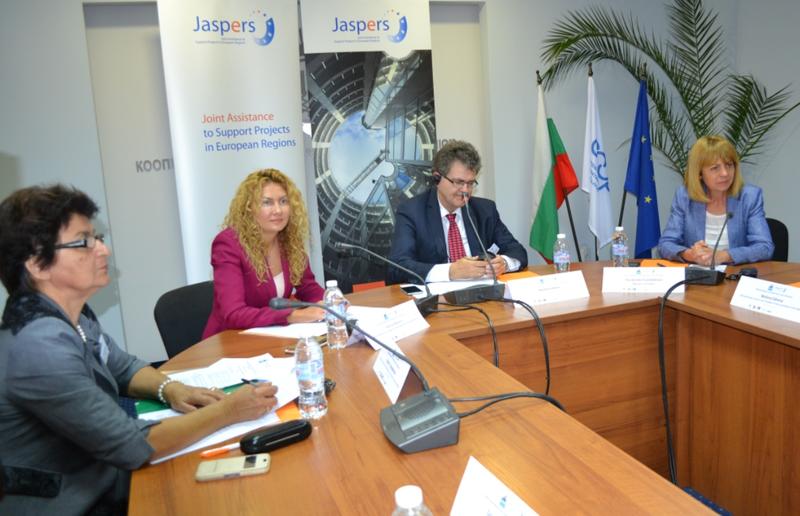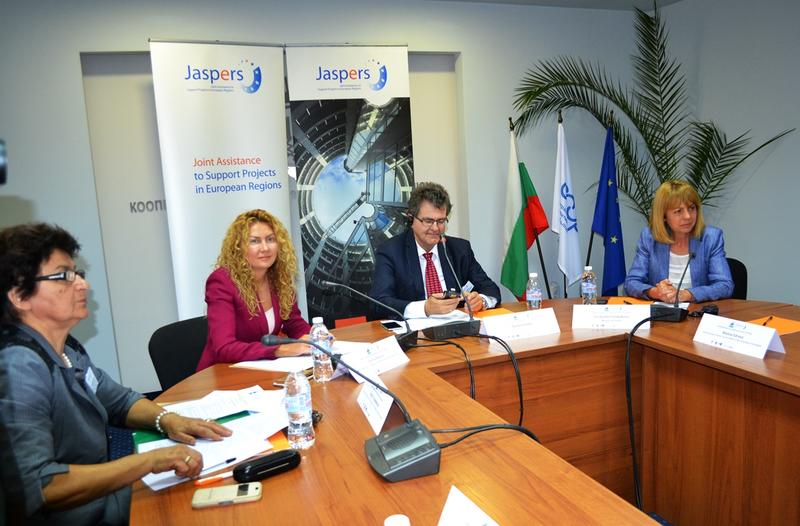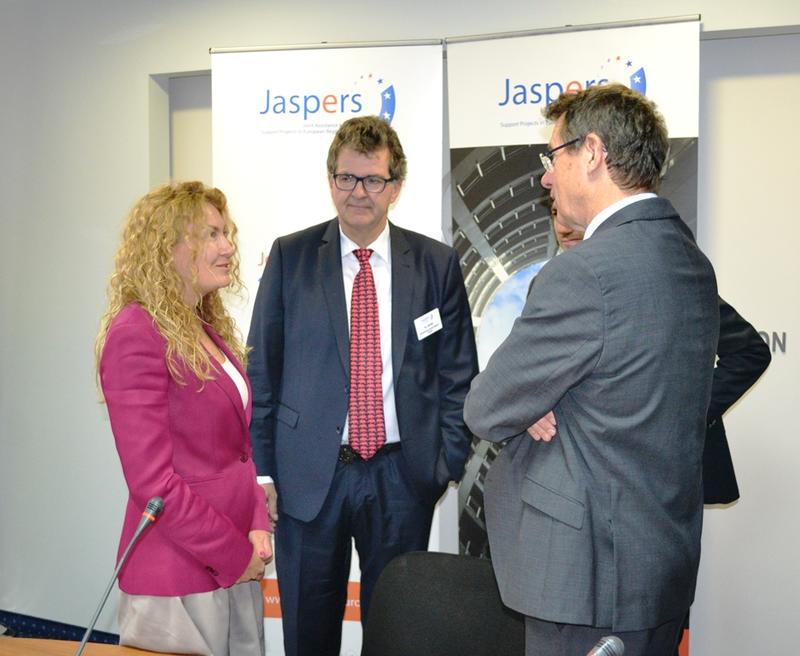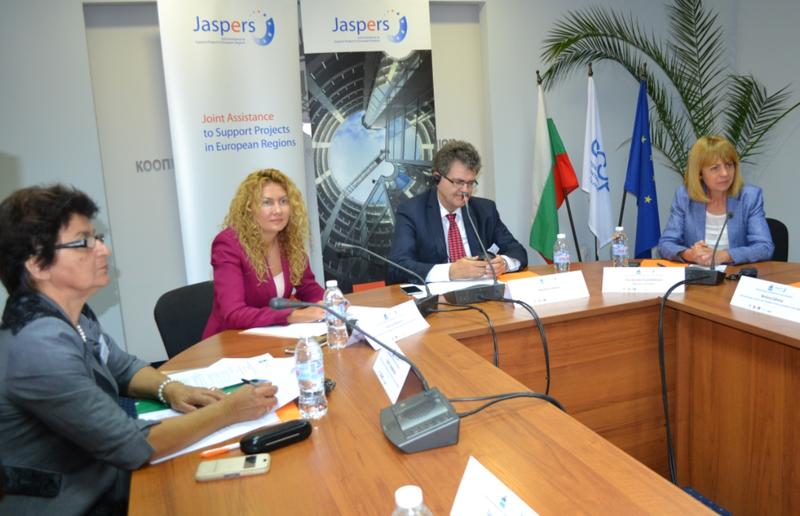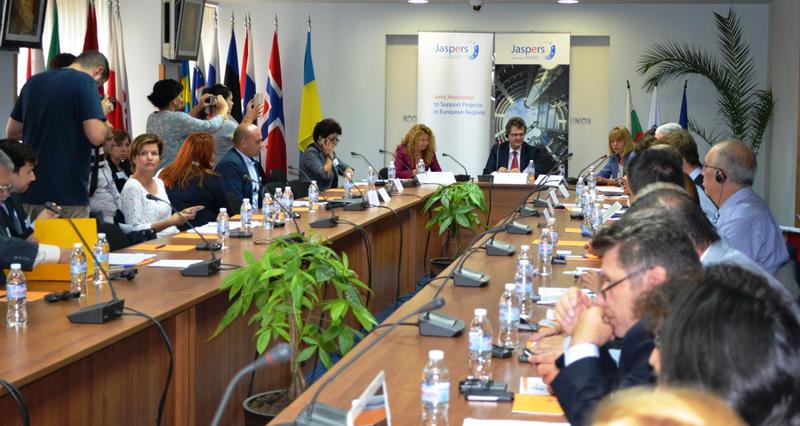Denitsa Nikolova: In partnership with JASPERS, we will repair 34 healthcare establishments, 27 centers for emergency medical care, and 170 branches for emergency medical care in the country
Denitsa Nikolova: In partnership with JASPERS, we will repair 34 healthcare establishments, 27 centers for eme
By Ministry of Regional Development and Public Works
Polycentric regional development and EU cohesion funds after 2020 will be the focus of the MRDPW during Bulgaria's presidency of the Union
Increasing the focus on polycentric regional development and urban development in accordance with the Amsterdam pact and implementing the Urban agenda for EU will be the main priorities of the Ministry of regional development and public works within Bulgaria's presidency of the EU. This was stated by Deputy Minister Denitsa Nikolova during the forum “JASPERS – Committee of the regions: dialogues for implementation of EU's urban agenda". “The main policy we will lead at EU level will be to seek opportunities to also report functional dependences between large and small cities and the remaining towns, and to look for the opportunities for common regional planning and support using the financial resources we expect to have at our disposal after the period of 2020", indicated Deputy Minister Nikolova. She stressed that Bulgaria has been trying to establish polycentric development of regions as a policy since 2010, but due to limited financial resources regions are reporting internal and inter-regional disproportions.
Deputy Minister Nikolova noted that the approaches for implementation of the EU's cohesion policy will be changed, and the new models for financing after 2020 are being sought and formed at the moment. According to her, one of the possible models for financing of projects will be the financial instruments and low-interest crediting. In this regard, Bulgaria has experience with the JESSICA initiative, which created an opportunity for the implementation of projects ensuring their sustainability through the income they generate in time. "This is one of the models, which will be defended and intended as an option for financing for the period after 2020", stated Deputy Minister Denitsa Nikolova. In her words, we are also facing the challenge of more limited funding for the new cohesion policy, which will lead to a requirement from the EC for each project to not only contribute to regional development and the aims of a specific programme, as well as the development of national territories, but to also contribute and create added value for the EU. "This is difficult to achieve and directs the efforts toward practical application of partnerships from the Amsterdam pact with regard to the formation of common projects which can be implemented through the various forms of future financing after 2020", stressed Denitsa Nikolova.
Regarding partnership with JASPERS, Deputy Minister Nikolova said that this instrument has helped significantly for the building and functioning of projects related to implementation of measures in support of projects for integrated urban transport in the larger cities. In the present programme period, the implementation of large projects for "Modernization of the emergency medical help system” of the Healthcare ministry and “Integrated urban transport of the capital city – phase II” of Stolichna Municipality is upcoming in cooperation with JASPERS. With the first of these, the Healthcare ministry will renew and modernize the building fund and equipment in the system for emergency medical help. Activities are planned to encompass emergency wards of 34 healthcare establishments, 27 centers for emergency medical help, and the 170 branches for emergency medical help all over the country linked to them. The project “Integrated urban transport of the capital city – phase II” should build on the achieved results from the project implementation in the previous programme period.
“In a spirit of continuity, Bulgaria will also make its step to create an opportunity to continue with already started and approved policies by the government, such as the monitoring of implementation of the Urban agenda and implementation of the Amsterdam pact and the 12 partnerships formed", said also Deputy Minister Nikolova. Bulgaria participates in 4 of them. Sofia participates in a partnership on the subject of "Digital transition", Burgas joined the subject of “Urban mobility", Gabrovo – the subject of “Innovative public procurement", and the MOEW works on the subject of “Climate adaptation". “I believe that in its essence Bulgaria has shown within the starting of the policy for implementation of the Urban agenda, through the Amsterdam pact, that we have our strong presence as European cities and institutions, that we can form policies, and not just defend projects prepared by ourselves seeking financing. Bulgaria will do everything in its power within the upcoming EU presidency to establish this role by participating in all partnerships, including those which are yet to be formed at EU level, through the form of the group for urban development. We will track their interaction in the formation of policies and seeking of new opportunities for their transition from the point of view of synergy between them", noted Denitsa Nikolova.



